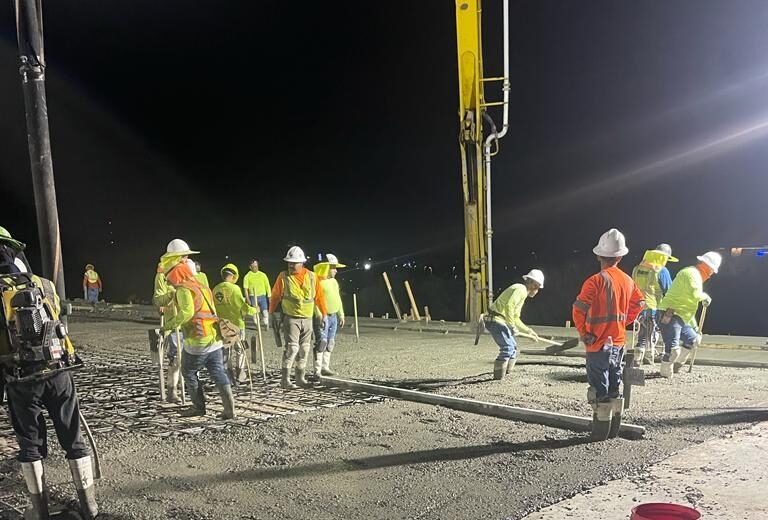
Essential Concrete Safety Tips: Protecting Workers on the Job Site Working with concrete is a fundamental aspect of the construction...

Permeable concrete pavements are an innovative solution that helps promote sustainable water management in urban environments by allowing rainwater to infiltrate into the soil. In this article, we will explore what permeable concrete pavements are, how they work, and what their benefits are for the environment and the community.
Permeable concrete pavements, also known as porous pavements or permeable pavements, are designed with a porous structure that allows rainwater to filter through the surface and infiltrate into the underlying soil. This feature helps reduce surface runoff and the burden on stormwater drainage systems.
Permeable concrete pavements are composed of an upper layer of porous concrete and a base layer of gravel or coarse aggregate. The porous concrete upper layer is designed with a controlled amount of voids or interconnected pores that allow water to pass through it and infiltrate into the soil. The design and specification of permeable pavements vary according to climatic conditions and specific site needs.
Among the environmental benefits of permeable concrete pavements are groundwater recharge, reduction of surface runoff and soil erosion, and improvement of water quality by filtering pollutants and sediments before they reach surface water bodies.
In addition to environmental benefits, permeable concrete pavements also offer significant socioeconomic benefits. These may include cost reduction associated with the construction and maintenance of stormwater drainage systems, improved road safety by reducing the risk of flooding and landslides, and the creation of local jobs in the installation and maintenance of permeable pavements.
Permeable concrete pavements are used in a variety of urban applications, including parking lots, residential streets, pedestrian walkways, and recreational areas. Examples of cities that have successfully implemented permeable pavements include Portland, Oregon, and Seattle, Washington, where permeable pavements have been installed in urban areas to improve water management and reduce pollution.
Despite their numerous benefits, permeable concrete pavements also present challenges and design considerations. These may include the need to maintain pavement permeability over time through regular cleaning of pores and sediment removal, as well as considering the load-bearing capacity and wear resistance of porous pavement in areas with heavy vehicular traffic.
In conclusion, permeable concrete pavements are an effective solution for promoting sustainable water management in urban environments by reducing surface runoff and improving water quality. With their ability to naturally infiltrate and treat rainwater, permeable pavements are playing an important role in creating more resilient and sustainable cities worldwide.

Essential Concrete Safety Tips: Protecting Workers on the Job Site Working with concrete is a fundamental aspect of the construction...

Decorative Concrete: Trends in Modern Finishes for 2025 Concrete is no longer just a construction material — it’s become a...

Sustainable Concrete Innovations in 2025: The Future of Eco-Friendly Construction In 2025, the construction industry continues its transformation towards sustainability,...

The Science Behind Concrete Cracking: Causes and Solutions Cracks in concrete are one of the most common issues in construction,...

Top 10 Concrete Myths Debunked: What Every Contractor Should Know Concrete is one of the most widely used construction materials,...

How to Plan Concrete Pouring in Large Construction Projects Pouring concrete in large-scale construction projects requires meticulous planning, logistical coordination,...
© 2023 Created with RGA Concrete Contractors LLC
This website uses cookies to provide you with the best browsing experience.